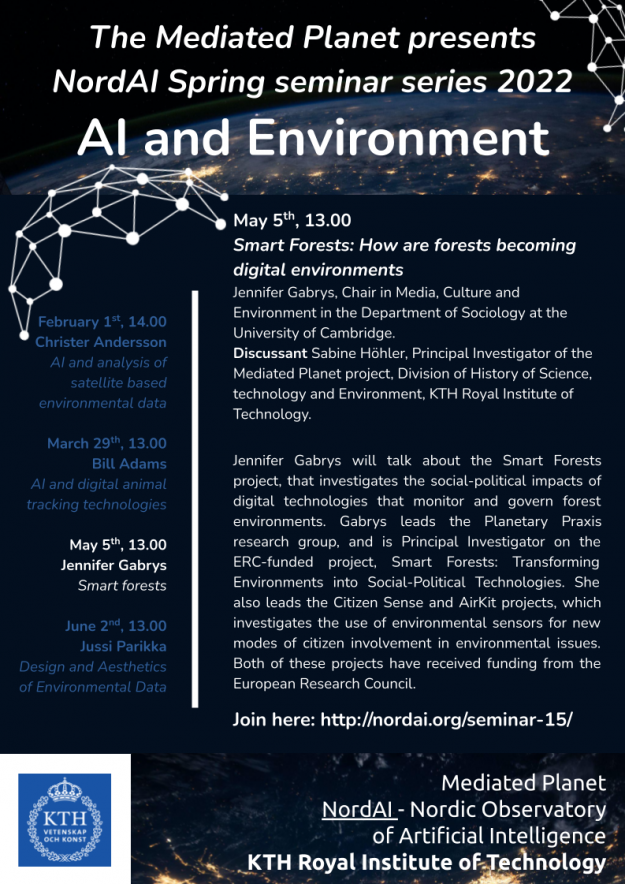
Smart forests
May 5th, 14.0o, Jennifer Gabrys, Chair in Media, Culture, and Environment in the Department of Sociology at the University of Cambridge.
Discussant Sabine Höhler, Principal Investigator of the Mediated Planet project, Division of History of Science, technology and Environment, KTH Royal Institute of Technology.
About
Jennifer Gabrys will talk about the Smart Forests project, that investigates the social-political impacts of digital technologies that monitor and govern forest environments. Gabrys leads the Planetary Praxis research group, and is Principal Investigator on the ERC-funded project, Smart Forests: Transforming Environments into Social-Political Technologies. She also leads the Citizen Sense and AirKit projects, which investigates the use of environmental sensors for new modes of citizen involvement in environmental issues. Both of these projects have received funding from the European Research Council.
Join here: http://nordai.org/seminar-15/
Read more: http://www.smartforests.net/


